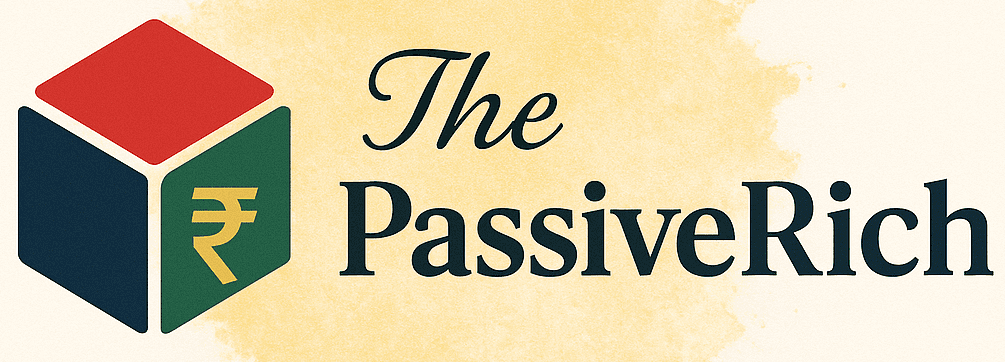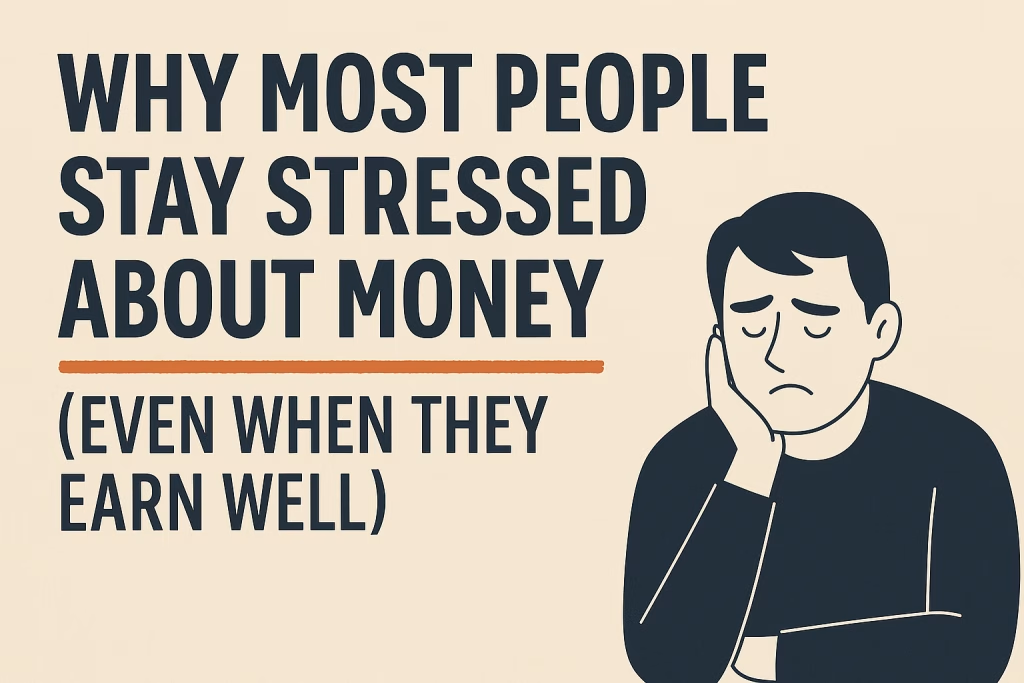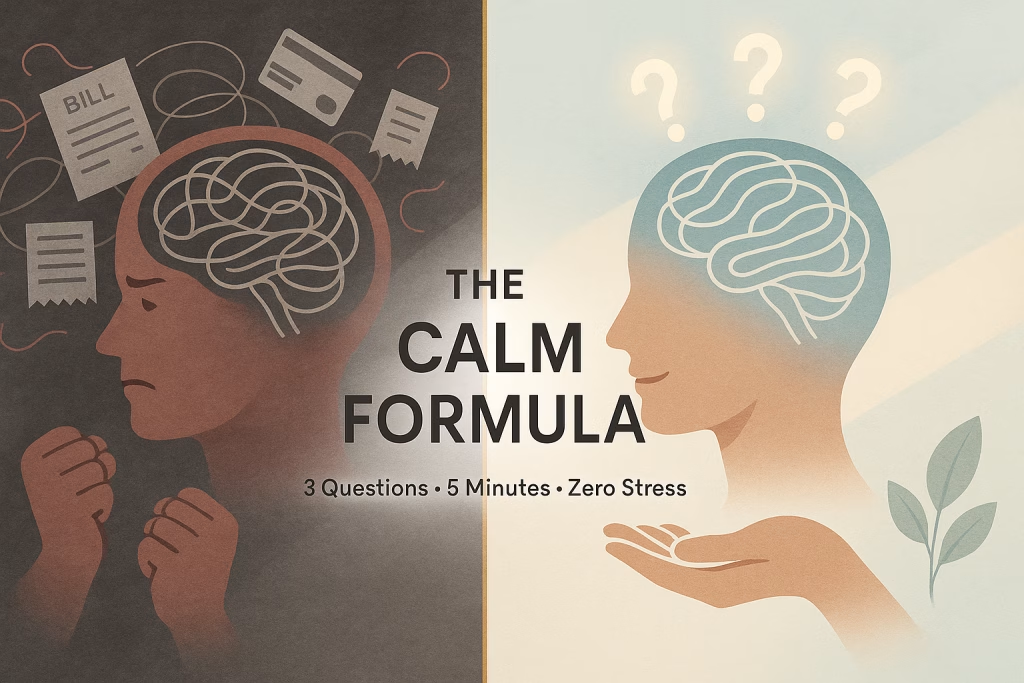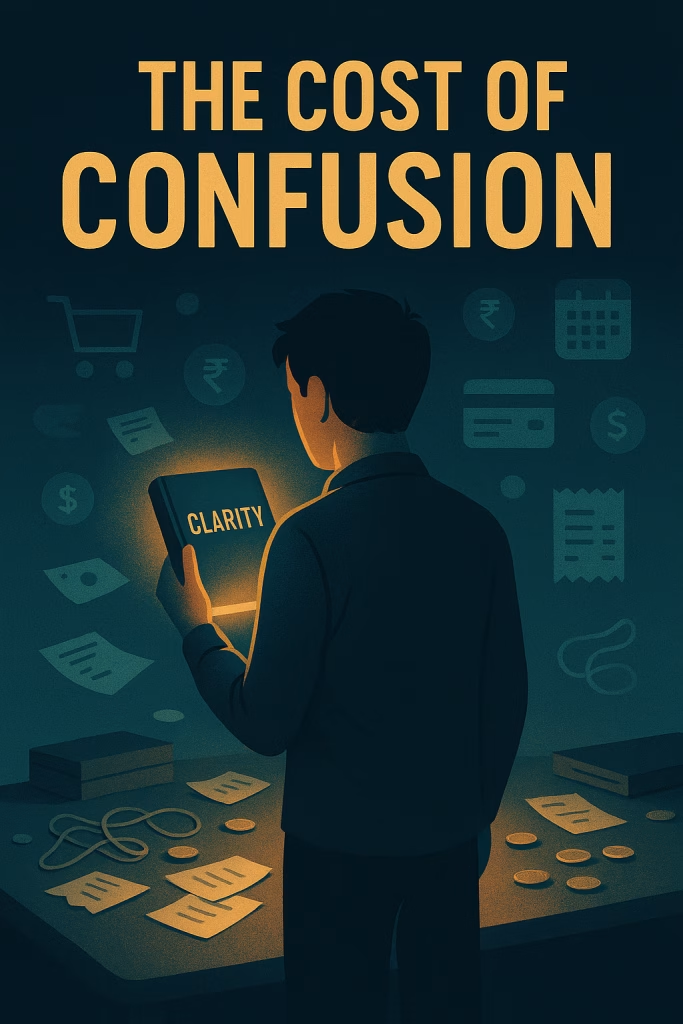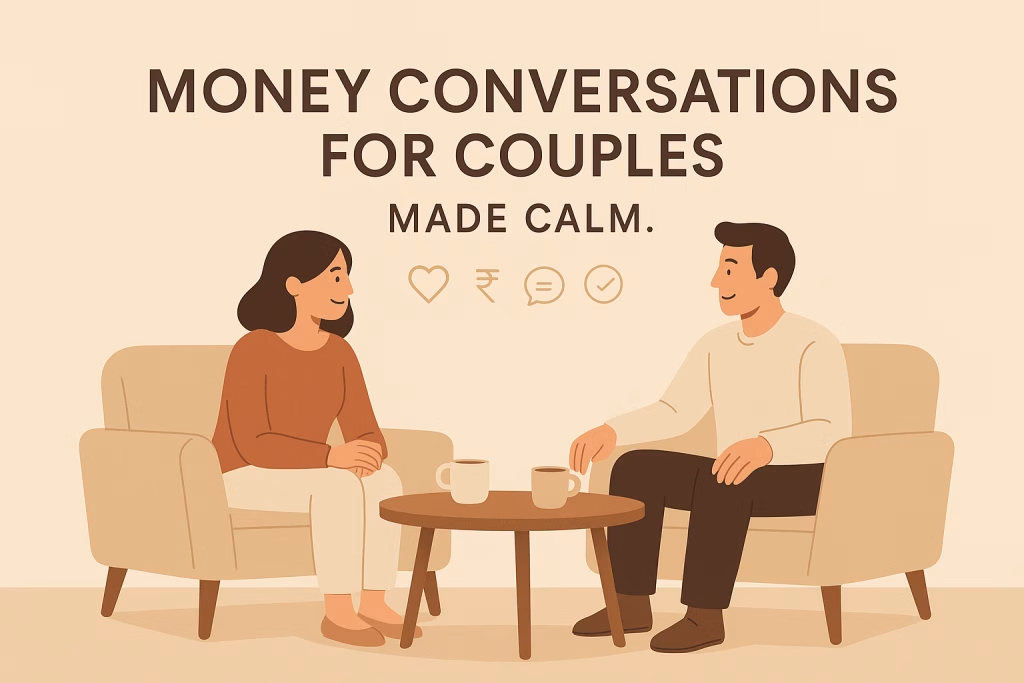I don’t know about you, but for a long stretch of my life, money felt like this shadow following me around. Even on the days when everything looked fine on paper — decent savings, stable job, things “in control” — there was always this tiny knot in my chest.
A strange, quiet pressure.
And the funny part? I saw the same thing happening with almost everyone around me. People who earned well, people who had their lives sorted, people who were doing “better than average”… still stressed. Still anxious. Still restless.
That’s when the idea of calm money hit me for the first time — not as some fancy concept, but as an actual survival skill. Something deeper than budgeting or tracking; something about how we think and feel when money enters the room.
Over the years, after hundreds of client conversations and far too many mistakes of my own, I’ve learned one simple truth:
Money stress doesn’t disappear when you earn more — it disappears when you think differently.
This entire article is about that shift.
And if I do my job right, it should end your search right here.
What “Calm Money” Actually Means (The Real Meaning Few Talk About)
People assume calm money is about having enough.
But that’s not it at all.
If I had to explain it the way I’d explain it to my younger self, I’d say:
Calm money is the feeling you get when money stops dictating your emotions.
When you can sit with your finances without panic.
When you can make decisions without guilt or confusion.
When you can breathe.
I remember a client who had all the signs of “success”—new car, weekend trips, two credit cards, a respectable salary. But every time I met him, he had this pressured look, like something was constantly chasing him.
Turned out he wasn’t confused about money — he was overwhelmed by it.
He didn’t lack financial knowledge.
He lacked money clarity.
Emotional clarity.
Mental space.
That’s what calm money does — it gives you space.
Space to think.
Space to choose.
Space to stop reacting like everything is an emergency.
And honestly, most people need this more than a financial plan.
Why So Many People Stay Stressed About Money (Even When Life Is “OK”)
Let me say this gently:
Most people are not irresponsible with money.
They’re just exhausted.
We live in a world where money touches everything — identity, relationships, status, dreams, even self-worth. So it makes sense that emotional finance feels heavier than it should.
A few reasons I’ve seen again and again:
1. Lifestyle grows faster than clarity
You earn more → you upgrade → then you upgrade the upgrade.
Suddenly your expenses grow legs.
2. We learn money beliefs in childhood without even realizing it
Some families avoid talking about money.
Some treat money as power.
Some fear it.
Some worship it.
These things stick.
3. Spending becomes emotional relief
After a long, draining week, that “treat yourself” moment feels like peace.
Except it’s temporary.
4. Confusion pretends to be busyness
More apps.
More goals.
More accounts.
More noise.
Zero direction.
5. Couples carry mismatched expectations
One wants security.
One wants freedom.
One wants order.
One wants spontaneity.
And they never say it out loud.
This is exactly why calm money matters.
It cuts through all this unnecessary noise.
The Invisible Triggers That Create Money Anxiety
Something I wish people talked about earlier in life is this:
Money anxiety doesn’t appear out of thin air.
It has triggers.
Here are the ones I see almost daily:
• Unclear spending patterns — that “where did it all go?” panic.
• Fear of the future — especially with unpredictable income.
• Comparison — the silent wealth-killer.
• Information overload — YouTube, Instagram, your cousin, and a random WhatsApp forward all shouting advice.
• Emotional load inside homes — especially for couples.
• The lie of “I should be further ahead by now.”
I can’t tell you how many people spend not because they want something, but because they want relief — from boredom, loneliness, stress, or fear.
Calm money interrupts this.
Not by force.
By awareness.
A Simple Calm Money Habit That Actually Works
I’ve tried fancy systems.
I’ve built complicated spreadsheets that even I couldn’t understand after a week.
Nothing stuck.
What did stick was a simple habit I now call the Calm Money Pause.
And trust me — it works ridiculously well because it’s doable.
Step 1: Stop for ten seconds before making any money decision.
Ten seconds.
That’s it.
Step 2: Ask yourself: “What am I feeling right now?”
Not “What should I do?”
But “What am I feeling?”
Fear?
Pressure?
Validation?
Guilt?
Joy?
Relief?
Money is emotional.
We just pretend it’s not.
Step 3: Identify the real need behind your impulse.
Security
Freedom
Escape
Approval
Convenience
Peace
Once you name the emotion, your mind calms down.
Step 4: Choose the smallest next action, not the best one.
This part is underrated.
People try to fix everything at once.
That creates more confusion.
Small steps build calm.
Calm builds consistency.
Consistency builds wealth.
That’s the heart of calm money.
Real Examples of What Calm Money Looks Like
Let me give you a few things I’ve actually seen people do:
✔ Pausing 24 hours before buying something over ₹5,000.
Works like magic.
✔ Couples having a 10-minute money chat every Sunday.
Not a fight.
Just a check-in.
✔ Using only one bank account for daily expenses to avoid mental clutter.
✔ Choosing experiences over impulsive purchases.
✔ Delaying lifestyle upgrades until the mind feels settled, not pressured.
None of this is revolutionary.
But it’s transformational.
That’s what calm money does — it shifts you from emotional spending to clear thinking.
How Calm Money Actually Makes You Richer
I don’t mean richer only in the financial sense — though that happens too.
I mean richer in peace, richer in control, richer in confidence.
Here’s what I’ve seen over and over:
- You make fewer mistakes
- You save without feeling deprived
- You avoid guilt-driven decisions
- You gain mental space
- You stop comparing
- You break existing money cycles
- You get better at mindful spending
- You build emotional resilience around money
The irony?
Calm money often leads to more real wealth than all the aggressive investing advice in the world.
Why?
Because a calm mind makes better decisions.
Simple as that.
Final Thoughts: Calm Money Is a Daily Choice
If you’ve read this far, here’s the truth I want to leave you with:
Most people don’t need a perfect financial plan.
They need a peaceful one.
Calm money doesn’t appear overnight.
It shows up through tiny pauses, tiny reflections, tiny shifts.
It begins with ten seconds.
Ten seconds of breathing before reacting.
Ten seconds of clarity before chaos.
Try it today.
Try it once.
Then try it again tomorrow.
You might be surprised by how quickly your relationship with money softens — and how much lighter life begins to feel.
Because at the end of the day:
Money should support your life, not strangle your peace.
And calm money is the bridge between the two.
